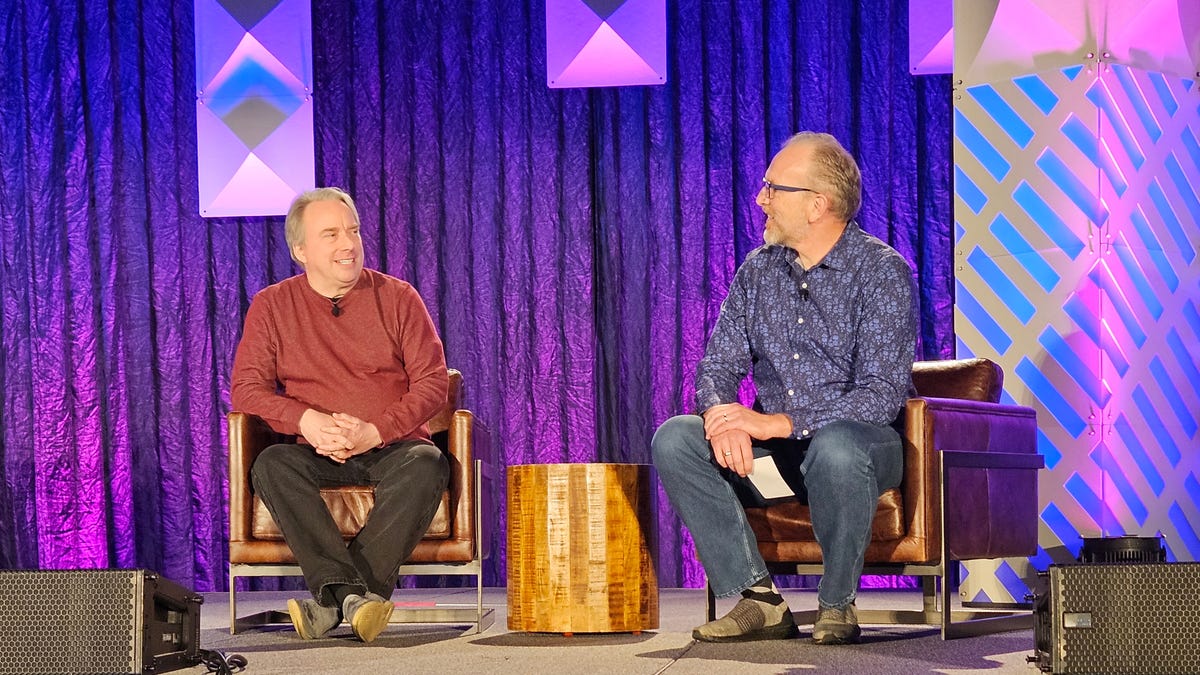That’s not to say the two men don’t think AI will be helpful in the future. Indeed, Torvalds noted one good side effect already: “NVIDIA has gotten better at talking to Linux kernel developers and working with Linux memory management,” because of its need for Linux to run AI’s large language models (LLMs) efficiently.
so THATS why we are getting better nvidia support.
i knew it just couldnt be from the goodness of their newly converted hearts.
You didn’t know GPUs are used for training/running DNN?
sure, but am i surprised this is the only reason they improved desktop drivers for us? no.
am i disappointed? yeah, a little.
Hohndel agreed but added that the industry needs to support these smaller projects – and not only with money. “Companies need to engage with these projects. Have your company adopt a couple of such projects and just participate. Read the code, review the patches, and provide moral support to the maintainers. It’s as simple as that.”
Really glad he said this, I keep seeing posts about how all these big companies could solve the problem by just throwing money at small projects and while that is better than nothing it would help way more to have their own developers helping to review and fix issues.
Is there a link to this talk (or interview, or whatever this is) but in a video format, or at least a text without all those «SEE ALSO» self ads?
Maybe it’s this one (I’m in a rush here 🙂) ? https://youtube.com/watch?v=VHHT6W-N0ak Someone in the comments writes that the full interview is in the channel of Linux Foundation : https://piped.video/channel/UCfX55Sx5hEFjoC3cNs6mCUQ
Sadly no, that one is three months old. Hopefully they’ll publish it on the Linux Foundation yt channel or something.
Here is an alternative Piped link(s):
Piped is a privacy-respecting open-source alternative frontend to YouTube.
I’m open-source; check me out at GitHub.
Here is an alternative Piped link(s):
https://piped.video/watch?v=VHHT6W-N0ak
Piped is a privacy-respecting open-source alternative frontend to YouTube.
I’m open-source; check me out at GitHub.
Oh, I just asked the same question. I find it terrible article not to link to the source at the beginning or end of article. I would like to read or watch the original interview too.
not yet, you should run an adblocker
If you’re still interested it seems that they’ve uploaded the keynote, see link in my comment:
https://lemmy.deedium.nl/comment/115389Thanks!
Wait a minute… BS stands for “Beautiful Science” now?
BS stands for Beautiful Soup: https://beautiful-soup-4.readthedocs.io/en/latest/
Does anyone have the link for the source of the interview? I’ve looked through the article and couldn’t see it at first glance.
Open Source Summit 2024 keynotes. I don’t think any of the recordings are available yet.
I see. For clarity and preventing some confusing, it would have been a good idea to disclosed that in the beginning of the article. Thanks for the note. I’ll wait until it’s available then.
Would this channel be the place to look forward to? The Linux Foundation: https://invidious.nerdvpn.de/channel/UCfX55Sx5hEFjoC3cNs6mCUQ
It literally was in the opening paragraph. Previous years keynotes are available in a playlist here, so I assume they’ll do the same for this year’s keynotes as well. The event only just ended yesterday.
It literally was in the opening paragraph.
No, I mean they should have disclosed this talk/interview not being ready to the public consumption. Clicking the link just opened up the webpage and I was lost, expecting the watch or read the interview. There is no mention of this being not available yet, despite the link. That’s what I mean being confusing. It’s not the end of the world, and it would also not be the end of the world if they added a note after the link like “(note: talk is not available to watch for the public yet)”.
In addition, hardware developers reinvent old ways of doing things and only learn by making all the same mistakes that have been made before. It’s sad, but true.
This same criticism is validly launched at software devs all the time lol.
One thing I’ve anecdotalally seen and heard is hardware guys indicating that something is rock solid and solved because it’s old, so building on top of it isn’t a problem. Obviously we have to build on the old to get to the new, but if we just skip auditing hardware due to age we end up deploying vulnerable hardware globally. Spectre and Meltdown are an interesting example where I’ve heard from at least one distinguished professor that “everyone” believed branch prediction design/algorithms were essentially done. Was it adequately assessed from a security POV? Clearly not, but was it assessed from a security POV in general? I have no idea, but it would be nice as a tech enthusiast and software guy to see the other side of the fence take these things seriously in a more public way, in particular when it comes to assessing old hardware for new attack vectors.
Spectre and Meltdown are an interesting example where I’ve heard from at least one distinguished professor that “everyone” believed branch prediction design/algorithms were essentially done.
Interesting to hear this.
Was it adequately assessed from a security POV? Clearly not, but was it assessed from a security POV in general? I have no idea, but it would be nice as a tech enthusiast and software guy to see the other side of the fence take these things seriously in a more public way, in particular when it comes to assessing old hardware for new attack vectors.
Right.
It seems they’ve uploaded the keynote, see:
Keynote: Linus Torvalds, Creator of Linux & Git, in Conversation with Dirk HohndelCool, thanks for sharing!
Here is an alternative Piped link(s):
Keynote: Linus Torvalds, Creator of Linux & Git, in Conversation with Dirk Hohndel
Piped is a privacy-respecting open-source alternative frontend to YouTube.
I’m open-source; check me out at GitHub.







